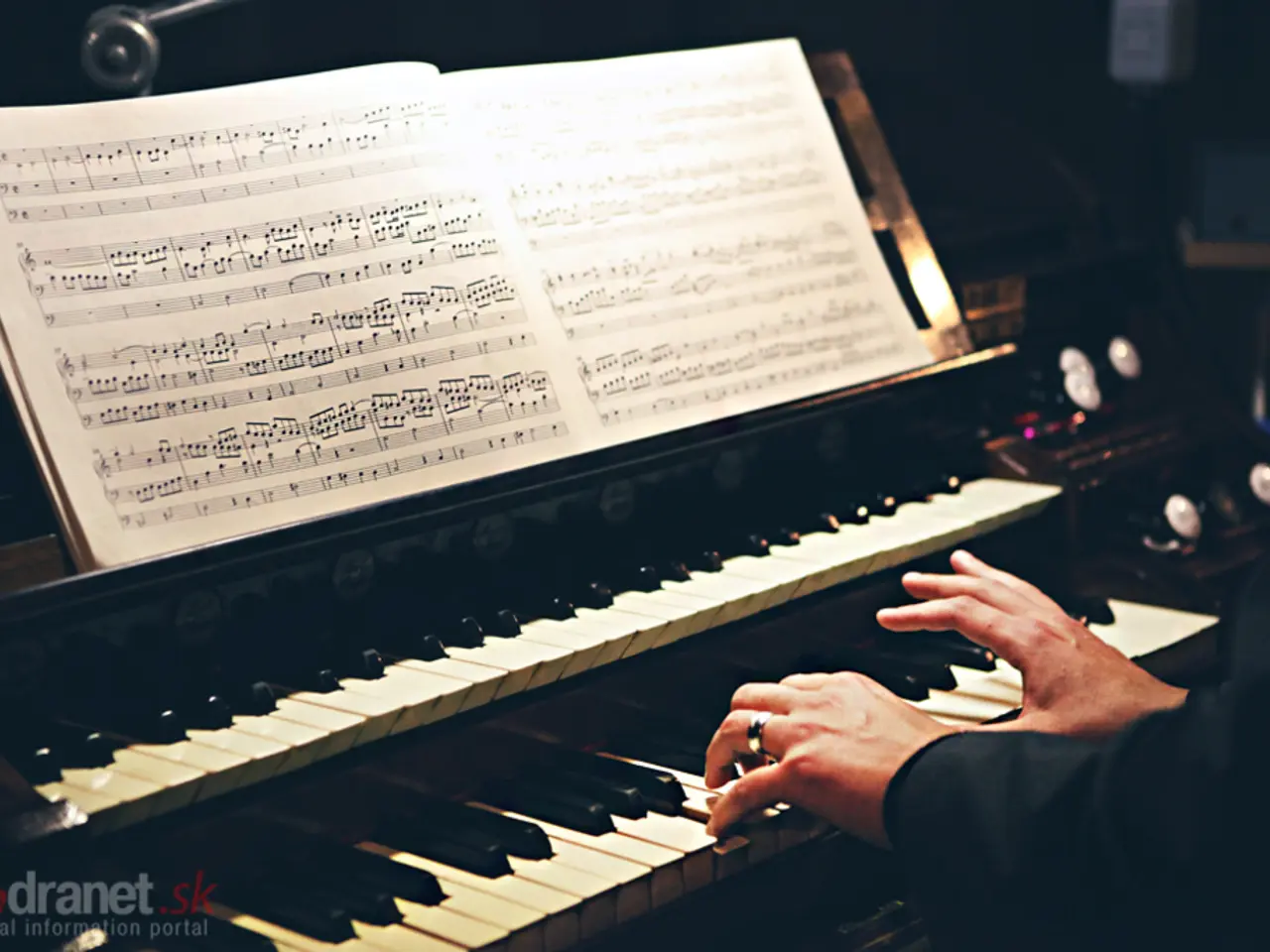Guidance on Purchasing Keyboards/Pianos for Novices: Buying Tips
In the world of music, choosing the right keyboard or piano is a crucial decision, especially for beginners. This guide aims to serve as a comprehensive resource in choosing a piano or keyboard that aligns with one's musical goals, preferences, and budget.
Digital Pianos and Electronic Keyboards: What's the Difference?
Digital pianos resemble traditional acoustic pianos, have 88 weighted keys, and offer a hammer action that mimics the authentic response of real piano keys. On the other hand, electronic keyboards are versatile, often feature a 61-key keyboard which may be unweighted or semi-weighted, and come loaded with a variety of sounds and rhythms.
Top Picks for Beginners
The top recommended keyboards for beginners in piano learning include options across budget and feature ranges, primarily from Yamaha, Casio, Roland, and Kawai. Here are some of the standout models:
- Roland GO:KEYS 3 - Under $400, this keyboard offers 61 keys, touch-sensitive, 500+ tones, loop mix function for creative play, lightweight and portable, USB MIDI for connectivity, Bluetooth audio and MIDI support. It's best for beginners wanting a versatile, fun, and portable instrument with modern tech connectivity and educational app compatibility.
- Yamaha PSR-E383 - Priced at $199–230, this keyboard features 61 keys with velocity sensitivity, 622 voices including excellent piano tones, built-in lessons and learning modes, USB MIDI for connection to learning software, and a durable and reliable build. It's ideal for traditional piano learners seeking a feature-rich keyboard with extensive sounds and educational features for an affordable price.
- Casio CT-S300 - With a price tag of $180–210, this keyboard offers 61 keys, velocity-sensitive keys, 400 tones, a compact and ultra-portable design, USB MIDI, and includes "Dance Music Mode" for creativity. It's best for absolute beginners looking for a very affordable, lightweight keyboard with essential learning and creative features.
- Yamaha P-145 (or P-125 in similar category) - Priced around $500, this keyboard boasts 88 weighted keys for a realistic piano feel, a good sound engine, compact design, USB connectivity, and is suitable for beginners progressing towards intermediate levels. It's best for beginners who want a full-size, weighted keyboard closer to an acoustic piano experience.
- Roland FP-10 - Also priced around $500, this keyboard features 88 fully weighted keys with Roland’s PHA-4 Standard key action, realistic piano sounds, Bluetooth MIDI, and is compact and portable. It's best for beginners aiming for expressive play on an 88-key weighted keyboard with modern connectivity.
- Kawai CN201 (More advanced beginner/intermediate) - Priced at ~$2299, this keyboard offers full piano weighted action, high-quality grand piano sound, furniture cabinet style, five-year warranty, and a traditional feel with digital features. It's best for beginners wanting a high-end, traditional digital piano with excellent action and sound, suitable for a long-term investment.
Making an Informed Decision
When buying a keyboard or piano, key considerations include budget, purpose and features, size and portability, and return policy and warranty. It's always recommended to try before buying and to invest for the future.
This guide has explored various options, highlighting the importance of considering each instrument's features, such as key action, sound quality, and connectivity options (such as having midi connection), which are vital for a fulfilling learning experience.
[1] Source: Keyboards for Beginners: The Complete Guide [2] Source: The Best Digital Pianos for Beginners [3] Source: The Best Digital Pianos for Beginners: 2021 Reviews [4] Source: The Best Digital Pianos for Beginners: 2022 Reviews [5] Source: The Best Portable Keyboards for Beginners: 2021 Reviews
- While making a decision about a keyboard or piano for piano lessons, it's essential to understand the difference between digital pianos and electronic keyboards.
- Digital pianos, similar to traditional acoustic pianos, have 88 weighted keys and offer a hammer action, mimicking the authentic response of real piano keys.
- On the other hand, electronic keyboards are versatile, often featuring a 61-key keyboard, which may be unweighted or semi-weighted, and come loaded with various sounds and rhythms.
- For beginners, the top recommended keyboards for piano learning span a range of budgets and features, primarily from Yamaha, Casio, Roland, and Kawai.
- The Roland GO:KEYS 3, priced under $400, offers 61 keys, touch-sensitive, 500+ tones, and is a versatile, fun, and portable instrument popular among beginners.
- The Yamaha PSR-E383, priced at $199–230, provides 61 keys with velocity sensitivity, excellent piano tones, built-in lessons, and USB MIDI connectivity for an affordable price.
- The Casio CT-S300, priced at $180–210, offers 61 keys, velocity-sensitive keys, 400 tones, and is suitable for absolute beginners looking for a very affordable, lightweight keyboard.
- More advanced beginners might prefer the Yamaha P-145 (or P-125 in a similar category), priced around $500, which provides 88 weighted keys for a realistic piano feel and USB connectivity.
- For those seeking a high-end, traditional digital piano, the Kawai CN201, priced at ~$2299, offers full piano weighted action, high-quality grand piano sound, and a five-year warranty, making it a suitable long-term investment for beginners.




